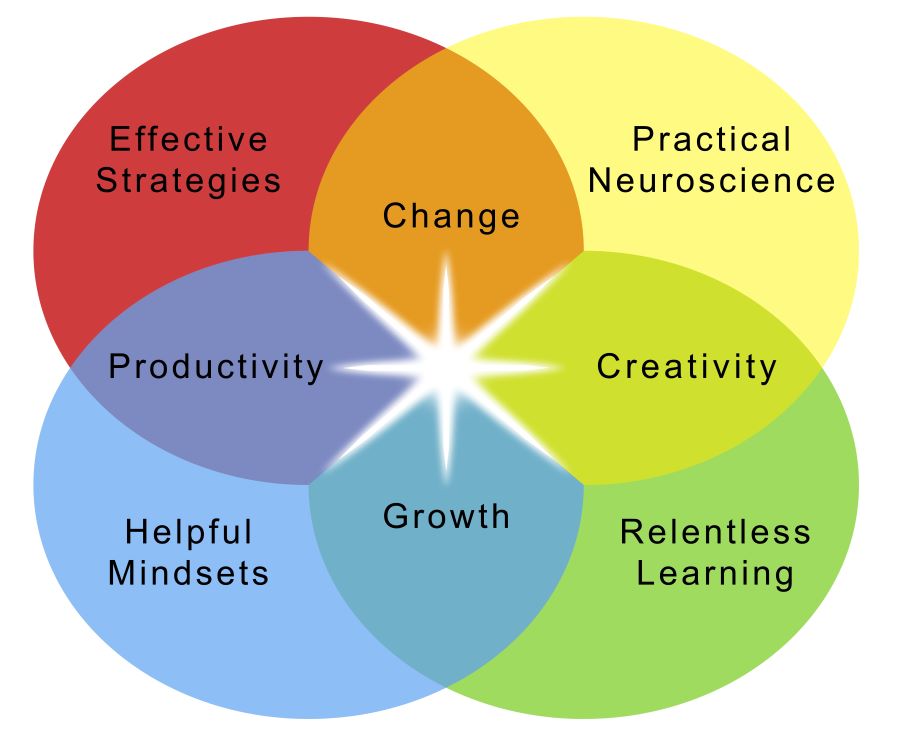
Another one of the cornerstones of my approach to becoming better is cultivating helpful mindsets:

Many people approach self-improvement and behavioral change with profoundly unhelpful mindsets that either sabotage their efforts or prevent them from making any effort at all. So it is essential to work on shifting from these unhelpful mindsets toward beliefs and attitudes that facilitate growth and change, success and happiness.
Here are some examples:

When a difficult problem makes you feel personally inadequate or incapable, you can recognize that the problem is not you and go seek out effective strategies.
You can replace pessimism or overblown optimism with realistic optimism and positive thinking done right.
If you believe that your intelligence and your abilities are set in stone, you can replace this fixed-mindset with a growth mindset – an understanding that improvement is possible because the brain is like a bunch of muscles.
You can replace perfectionism with a spectrum mindset and a belief that everything counts.
If you long for the day when you can be “done” with the work of self-improvement, you can come to accept the fact that you’ll never get there.
You can replace a craving for quick-fixes with a resolve to patiently pursue self-improvement at a sustainable pace.
If you tend to judge yourself and others harshly, you can decide, instead, to give yourself and others permission to be human.
You can let go of the need to convince everyone that you’re right by remembering that you’re not the jackass whisperer.
You can replace the belief that you need to always stay on top of things with a desire to get to the bottom of things.
Instead of embracing the rat-racer’s need to work constantly, you can give yourself permission to rest.
If you believe that you must always be independent and never ask for help, you can instead realize the power of interdependence.

You can stop playing the role of a passive victim and become an active agent, recognizing that you are response-able in every situation.
Instead of seeing obstacles as unfair punishments, you can see them as opportunities for mental training.
You can replace the need to discover your one true calling with the recognition that your Ikigai can be approached from multiple angles and must be earned.
Instead of striving to be seen as normal, you can embrace being weird.
And lastly, you can learn to appreciate what you have by seeing every day as a bonus day.
So how do you cultivate helpful mindsets?
One strategy is to tap into the power of daily wisdom and read, listen to, or watch some piece of self-improvement or mental health advice each day. Many of the ideas will repeat, but that’s the point: Spaced repetition is how you rewire the brain.
Another important technique is to put these helpful mindsets to use. Because actions speak louder than thoughts, acting in accordance with a helpful mindset causes you to internalize that mindset:
- You can cultivate a more grateful mindset by keeping a gratitude journal and practicing savoring.
- You can embrace a process-based identity by tracking your effort rather than your outcomes.
- You can improve your sense of self-efficacy by using achievement reminders and pride journaling.
- You can develop a growth mindset by taking risks and embracing the lessons of mistakes and failures.
Lastly, it’s easier to shift your mindsets if you’re aware of your mindsets. Therefore, cultivating mindfulness is helpful. Through practices such as meditation and everyday mindfulness, you can become more and more aware of your own thought-processes and, in turn, better and better at adjusting them.
It’s Not Too Late
I had a fixed mindset until my late 20’s. I spent many years searching for quick fixes or just being passive. At times I’ve been perfectionistic, judgmental, or entitled. But in recent years, I’ve been steadily changing. My mindsets are getting better, and I, in turn, am becoming better. You can too. It’s not too late.
